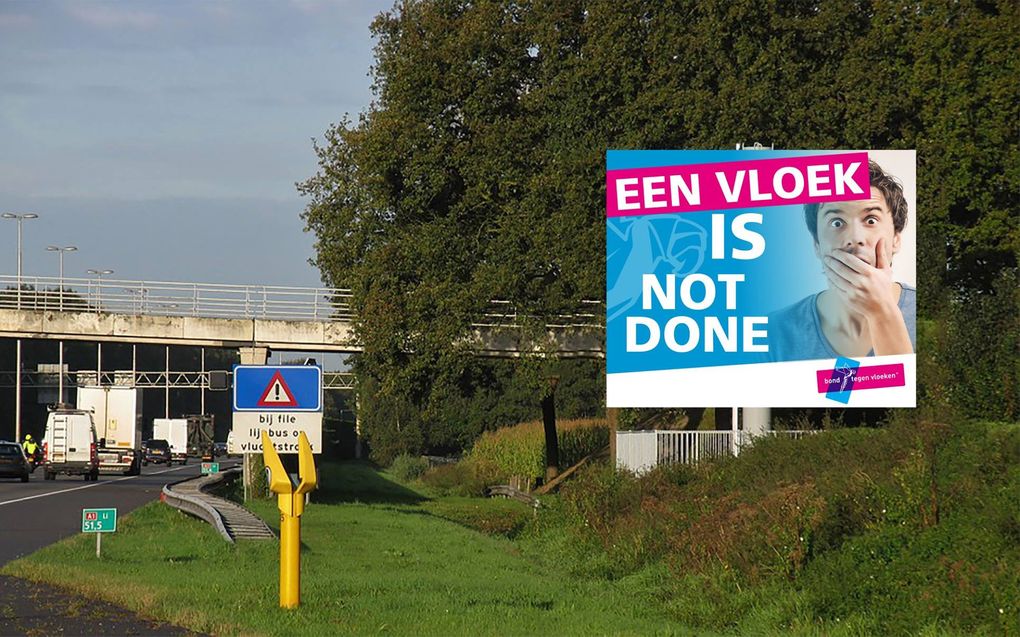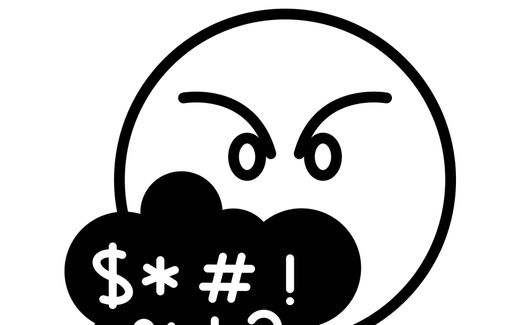Cursing is on the rise in Holland
04-09-2023
Western Europe
Hanneke Klein-den Hertog, RD

A billboard from a campaign against foul language by the Dutch Bond tegen vloeken. The board reads: a curse is not done. Photo Facebook, Bond tegen vloeken
Western Europe
Dutch people have started using profane language more in recent years. In 2007, one in 20 cursed regularly or often; now, it has doubled to one in 10. "Our work is not yet finished," concludes Kees van Dijk, director of the Dutch Bond tegen Vloeken (League Against Profanity).
The figures come from a survey the League commissioned earlier this year, which it published on Wednesday. The questions distinguished between using profane words, like diseases, for example, and cursing, using the name of God or Jesus. Dutch people find the first more disturbing than the latter, the survey shows. The former is more often described as uncivilised, disruptive, annoying, and hurtful.
The older a person is, the less, he or she has to deal with swearing, the survey also shows. For instance, 77 per cent of 12- to 18-year-olds sometimes hear a curse in their immediate environment, compared to 43 per cent of people over 65. Young people also swear more often than older people.
Especially in traffic, people find it difficult to keep a curse inside; 55 per cent of Dutch people occasionally hear a curse on the street. This is followed by television (48 per cent), among friends (42 per cent) and on social media (40 per cent). Some 68 per cent of young people under 18 hear swearing once in a while at school.
People also indicated in the survey how bothersome they find swearing with certain topics. Topping the list are disabilities and diseases: more than 60 per cent find swearing with these very unpleasant. Swearing with faith or religion is labelled very unpleasant by 30 per cent of people.
Secularisation
With the survey, the Bond tegen Vloeken mainly wanted to find out how people today view swearing and cursing. Van Dijk: "In 1995 and in 2007, we held a survey with more or less the same questions. Those were different times. By repeating the survey now, we can see what impact developments such as secularisation and social media have had."
Young people aged 12 to 17 were also surveyed for the first time. Why?
"We have been focusing more on youth in recent years. For instance, we want youth panels to help us think about our work. For this, we knock on the doors of political youth organisations and church youth associations, for example. Young people are constantly coming into contact with social media, and we would like to know how that influences them."
What are the most remarkable findings from the survey for you?
"On the one hand, we were happy that many people still know the difference between cursing with diseases and abusing God's Name and that not everything is lumped together. At the same time, it hurts that people report having more trouble with hearing diseases than hearing God's Name. Our main objective is to promote the respectful use of God's Name. From the results, we notice that this is sliding somewhat into the background, and we find that unfortunate."
Young people curse more often than older people. What does this say about the future?
"For us, it means our work is not finished. We are fully committed to countering this development. We do this, for example, during some 800 guest lessons a year, in which we talk about the coarsening of language. We notice that there is a huge need for these lessons in Christian as well as Islamic and secular schools.
At the same time, we should also not pretend that this is the first time young people have been coarse-mouthed. The Bond tegen Vloeken was founded back in 1917, and for good reason."
The League Against Profanity is less well-known than it was in 2007. Why is that, do you think?
"Before, our posters used to hang in almost all train stations. That cost an awful lot of money, and we haven't done that for years, but it could explain why our visibility has declined. Among over-65s, nine in 10 still know us, but among 18-year-olds, it is only a third. Clearly, we need to continue our efforts to gain exposure among the new generation, for instance, through social media."
This article was translated by CNE.news and published by the Dutch daily Reformatorisch Dagblad on August 30, 2023
Related Articles








